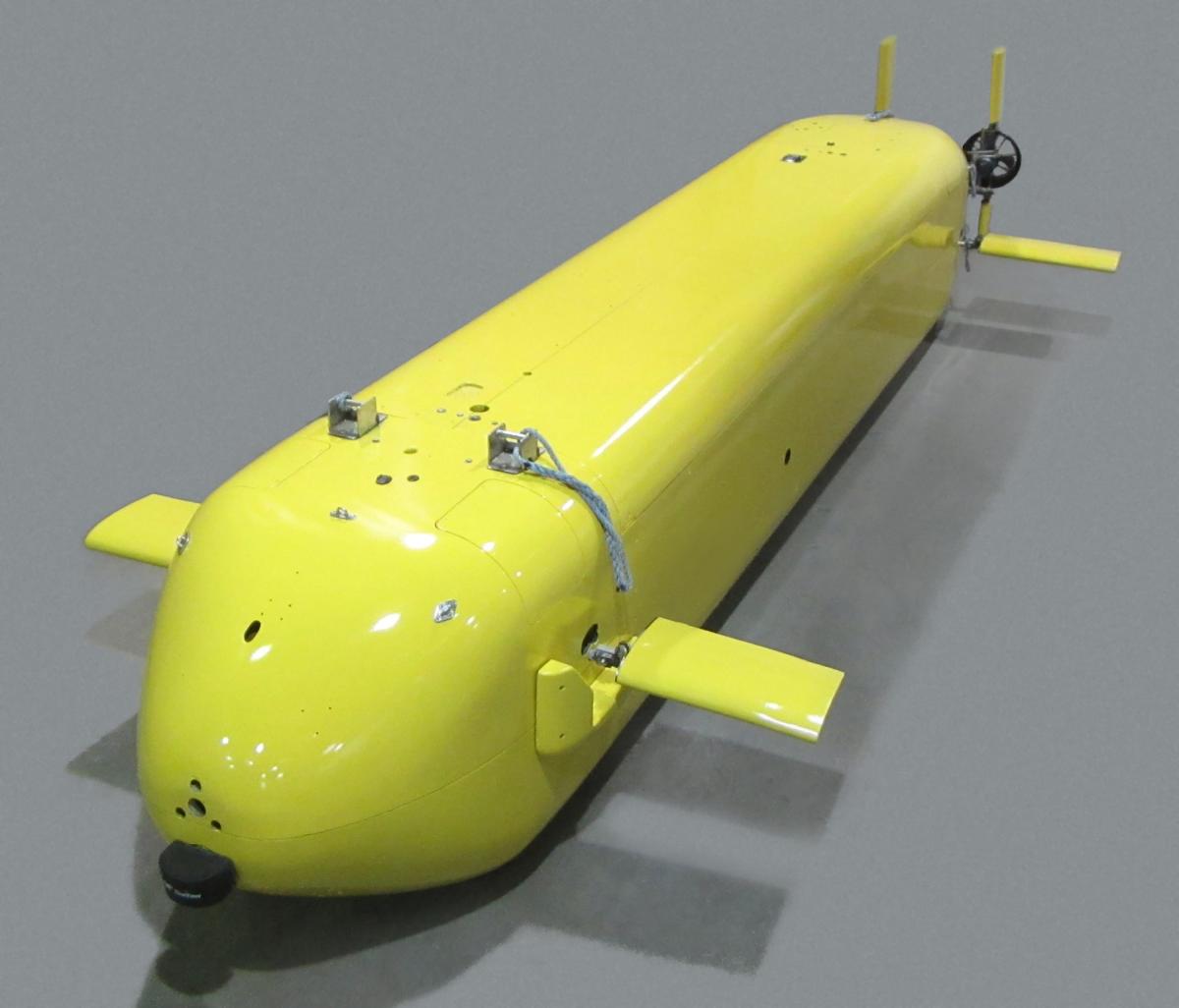GM and U.S. Navy Collaborating on Fuel Cell-Powered Underwater Unmanned Vehicles
Hydrogen fuel cell technology could augment ships and subs on patrol

WASHINGTON, D.C., June 23, 2016 /3BL Media/ – General Motors, the Office of Naval Research and the U.S. Naval Research Laboratory are cooperating to incorporate automotive hydrogen fuel cell systems into the next generation of Navy unmanned undersea vehicles, or UUVs.
Hydrogen fuel cells convert high-energy hydrogen efficiently into electricity, resulting in vehicles with greater range and endurance than those powered with batteries. Under the ONR’s Innovative Naval Prototype program for Large Displacement UUVs, energy is a core technology in the Navy’s goals for vehicles with more than 60 days endurance.
The Naval Research Laboratory recently concluded an evaluation of a prototype UUV equipped with a GM fuel cell at the heart of the vehicle powertrain. The tests, a key step in the development of an at-sea prototype, were conducted in pools at the Naval Surface Warfare Center in Carderock, Md.
“Our in-water experiments with an integrated prototype show that fuel cells can be game changers for autonomous underwater systems," said Frank Herr, ONR's department head for Ocean Battlespace Sensing. "Reliability, high energy, and cost effectiveness — all brought to us via GM's partnering — are particularly important as Navy looks to use UUVs as force multipliers."
Hydrogen fuel cell propulsion technology helps address two major automotive environmental challenges: petroleum use and carbon dioxide emissions. Fuel cell vehicles can operate on renewable hydrogen from sources like wind and biomass stored for later use. Once converted to electricity, water vapor is the only emission. Recharging takes only minutes.
GM’s fuel cells are compact and lightweight, and have high reliability and performance. Lower cost is achievable through volume production. These attributes match the goals of the Navy to develop reliable, affordable systems.
“The collaboration with the Navy leveraged what we learned in amassing more than 3 million miles of real-world experience with our Project Driveway fuel cell program,” said Charlie Freese, executive director of GM Global Fuel Cell Activities. “Our customers will benefit from additional lessons we learn about the performance of fuel cells in non-automotive applications that will be useful in GM’s drive to offer fuel cells across consumer markets.”
About General Motors Co.
General Motors Co. (NYSE:GM, TSX: GMM) and its partners produce vehicles in 30 countries, and the company has leadership positions in the world's largest and fastest-growing automotive markets. GM’s brands include Chevrolet and Cadillac, as well as Baojun, Buick, GMC, Holden, Isuzu, Jiefang, Opel, Vauxhall and Wuling. More information on the company and its subsidiaries, including OnStar, a global leader in vehicle safety, security and information services, can be found at http://www.gm.com.
About the Naval Research Laboratory
The U.S. Naval Research Laboratory is the Navy's full-spectrum corporate laboratory, conducting a broadly based multidisciplinary program of scientific research and advanced technological development. The Laboratory, with a total complement of approximately 2,500 personnel, is located in southwest Washington, D.C., with other major sites at the Stennis Space Center, Miss., and Monterey, Calif. NRL has served the Navy and the nation for over 90 years and continues to meet the complex technological challenges of today's world. More information on NRL can be found at http://www.nrl.navy.mil/
About the Office of Naval Research
The Office of Naval Research enables the discovery, development, and delivery of innovative science and technology to meet the needs of the U.S. Navy and Marine Corps today, and for the future force. To do this, ONR invests in targeted basic and applied research and technical development with partners in industry, academia, and Department of Defense laboratories. http://www.onr.navy.mil
CONTACTS:
Alan Adler
GM Fuel Cell Activities
313-319-8486
alan.adler@gm.com
Victor Chen
U.S, Naval Research Laboratory
202-360-1443
victor.chen@nrl.navy.mil
Bob Freeman
Office of Naval Research
571-276-6039
robert.freeman@navy.mil

